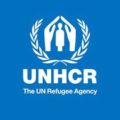Auto Mechanic
JOB DETAIL
Mission and objectives
The Office of the UNHCR was established on 14 December 1950 by the UN General Assembly. The agency is mandated to lead and co-ordinate international action to protect refugees and resolve refugee problems world-wide. Its primary purpose is to safeguard the rights and well-being of refugees. It strives to ensure that everyone can exercise the right to seek asylum and find safe refuge in another State, with the option to return home voluntarily, integrate locally or to resettle in a third country (www.unhcr.org). The UNHCR Representation Office in Rwanda principally manages a refugee population (mainly refugees from the Democratic Republic of Congo who have been on the Rwan-dan territory since 1996 and Burundian refugees who have been arriving in the country further to the volatile situation in Burundi since April 2015) as well as a significant re-turnee population of Rwandan refugees returning after many years in exile. It is com-posed of the Branch Office in Kigali and Field Offices in Huye, Gicumbi, Rusizi, Rubavu, Karongi, Kirehe and Kabarore. It hosts approximately 155,749 refugees in three proracted refugee camps, namely Nyabiheke (managed by Kabarore Office) Gihembe (managed by Gicumbi Office) as well as Kiziba (managed by Karongi Office), three new refugee camps, namely Kigeme and Mugombwa (managed by Huye Office) as well as Mahama (managed by Kirehe Office), and urban settings (Kigali and Huye). Since April 2015, UNHCR is also supporting two additional reception centers in Bugesera and Nyanza districts for Burundian refugees. The existing transit center in Rusizi (Nyagatare Transit Centre) that was receiving Rwandan returnees has also started functioning as a reception center for Burundian new arrivals. As of December 2013, Rwanda hosted approximately 74,000 Congolese refugees. 99% of the refugee caseload is predomi-nantly composed of refugees from the Democratic Republic of Congo (DRC), with 84% originating from North Kivu and 11% from South Kivu.
Context
During times of displacement, we provide critical emergency assistance in the form of clean water, sanitation and healthcare, as well as shelter, blankets, household goods and sometimes food. We also arrange transport and assistance packages for people who return home, and income-generating projects for those who resettle.
Task Description
Under the direct supervision of the Associate Fleet Management Officer, and overall management of the Supply Officer, the incumbent will be responsible for, but not limited to, the following functions: -Check vehicles and equipment received at the workshop to determine the nature of repairs required and include in the Service order detailed descriptions of the repairs that will have to be carried out. -Book vehicles for their regular maintenance and advise users on the best time for taking their vehicles to the workshop to avoid peak times and waiting periods. -Conduct detailed analyses of the vehicle problem areas using various types of hand tools, gauges, testing and fault-tracing equipment (Diagnostic tools). -Deploy the required skills to troubleshoot faults on major vehicle components such as braking systems, transmission systems, Fuel systems, final drive, electric systems, etc. -Diagnose, Strip, examine and reassemble the engines, gearboxes, servo units, clutch systems, etc. to their original status after repair. -Run an effective installation of electronic injectors, calibration, and diagnostic tests, erase error codes, troubleshoot hydraulic systems/neutronic mechanisms, and provide a solution as necessary. -Implement a master plan for scheduled and corrective maintenance in line with manufacturers’ recommendations. -Employ required skills to troubleshoot complicated faults on forklifts, trucks, buses, light vehicles, and ambulances, including repairing steering, differential and clutch systems. -Monitor and account for actual time spent on each job through servicer order completion. Locate spare parts properly, for future tracking purposes. -Receive requests from other sectors and team sites, verify them and respond after consulting the supervisor. Receive requests from the workshop, check them and immediately inform the supervisor for local purchase.
Competencies and values
-Accountability -Adaptability -Flexibility -Building Trust -Client Orientation -Commitment and Motivation -Commitment to Continuous Learning -Integrity -Knowledge Sharing -Technological awareness -Working in Teams
Living conditions and remarks
Kigali, the capital of Rwanda, has undergone an incredible period of rejuvenation and stability that is visible the moment you step out into this beautiful city. Accommodations are found easily and at the relevant standards and recreation infrastructures (swimming pools, aerobics, etc…) can be found in various places. Shops and markets are available with necessary items including imported goods, home furnishings electrical appliances and vehicle spare parts. Public and private health facilities are available in Kigali and some of them such as King Faisal Hospital, Legacy Clinic, Hôpital la Croix du Sud, etc …work with CIGNA insurance. The above Hospitals have the necessary health equipment; ambulances, adequate health services and can handle any emergency. Kigali is an exceptionally safe city. However, in case of emergency, there are several emergency numbers in Kigali, so be sure to know which to call. You can reach the police on a special line by dialling 999. Firefighters can be reached at 111 and the emergency services are at 112. If you have or see a traffic accident, call 113.



